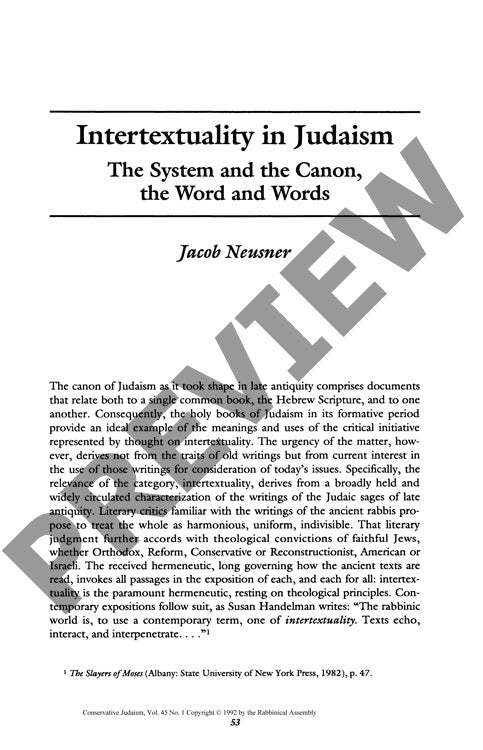Intertextuality in Judaism the System An
Couldn't load pickup availability
Contemporary scholars often treat Judaism's ancient canonical texts as an intrinsically unified web of documents, but compelling evidence suggests this view stems more from theological conviction than literary reality. Through systematic analysis of rhetoric, logic, and content across the Mishnah, Tosefta, Talmud, and midrashic literature, this research challenges three dominant scholarly positions that claim these texts form an indivisible, harmonious whole. Using both genealogical and taxonomic frameworks to assess textual relationships, the investigation distinguishes between demonstrable literary connections and interpretively imposed unity. While specific texts indeed relate to others through clear dialectical or taxonomic links, their intrinsic characteristics reveal no evidence of the seamless intertextual system widely presumed in current scholarship. Rather than emerging from inherent textual affinities, the Jewish canon appears to have developed through deliberate selection and construction by interpretive communities. These findings prompt a fundamental reconsideration of how ancient Jewish texts should be read and interpreted in modern academic discourse.

More Information
-
Physical Description
-
Publication Information
Published 1992
ISBN
-
Publication Credits
Jacob Neusner

